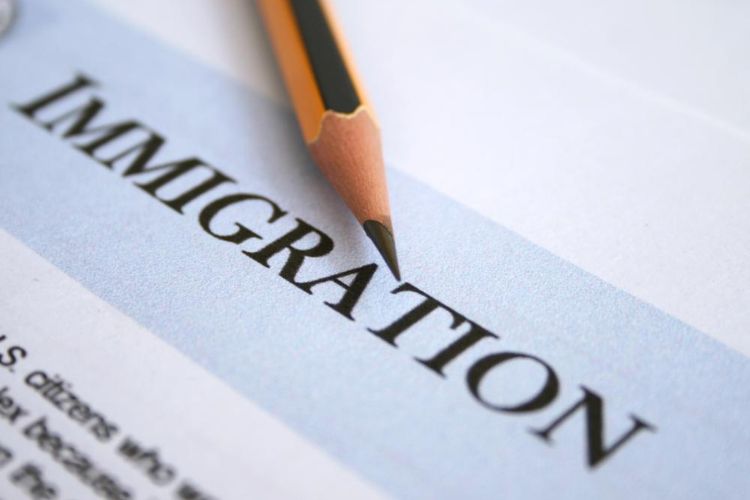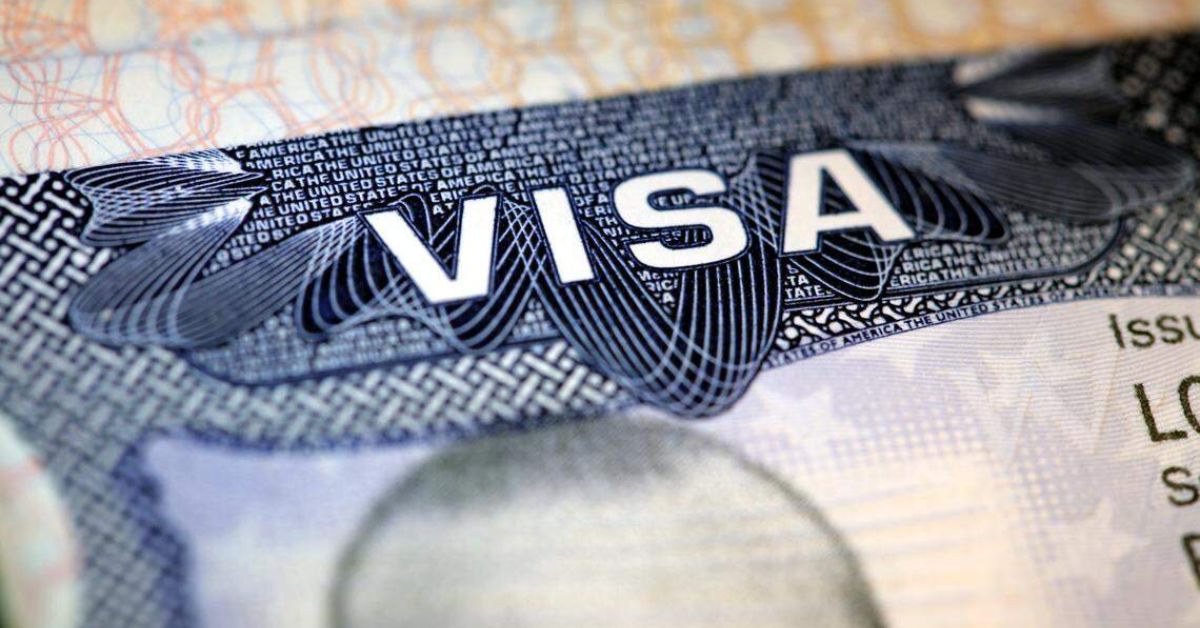Deportation immigration attorney! Three words that can shift the direction of someone’s life forever. Facing removal proceedings can be overwhelming. However, knowing that you have the right to appeal offers a vital second chance. With legal strategies tailored to your case and timelines that must be met quickly.
This guide explains why having the right legal help can mean the difference between staying and leaving. Keep reading to discover how immigration appeals work and how to protect your future!
Table of Contents
ToggleThe Immigration Appeal Procedure: How to Fight a Deportation Order Legally

When an immigration judge denies your case or issues a removal order, you’re not necessarily at the end of the road. You are always allowed to appeal a decision to the BIA and higher federal courts with the help of an immigration appeal attorney who specializes in immigration appeals. Appeals can only challenge decisions based on legal error, procedural unfairness, or newly discovered evidence, but they create an avenue for hope and legal action.
It’s hard to be facing removal, but it can feel empowering to understand your rights. An experienced deportation immigration attorney is capable of evaluating whether the judge’s ruling in your case is subject to appeal, and if so, will work with you to explore the idea of taking that step.
What Triggers a Deportation Order Appeal? Common Legal Grounds
The decision on immigration appeals often involves an appeal related to the outcome of the original case because of an issue of fact, law, or procedure…or from qualifiers presented through the change of circumstances. So, let’s look at the most frequent reason for appealing deportation.
- Procedural Errors: When immigration courts overlook crucial documents, misapply legal standards, your case outcome may be fundamentally flawed.
- New Evidence: If there is new information, such as a marriage to a U.S. citizen, updated asylum claims, you may have legal grounds to reopen or appeal your case.
- Violation of Rights: The effect can be immigration appeals decisions, where successful appeals can overturn earlier decisions.
Behind the Brief: What a Deportation Immigration Attorney Really Does

An immigration appeal lawyer is more than just a representative. They’re a strategic advocate navigating the legal system on your behalf. They will evaluate your case, discover weaknesses in the initial decision, and formulate convincing arguments supported by law. No matter if it is before the BIA or federal court, their presence is vital, as it is no easy task to succeed in reversing a removal order.
1. Estimate the Case for Appeal
An attorney begins by thoroughly reviewing court transcripts, evidence, and an individual’s immigration history to determine if an appeal has legal merit. This stage is also when you may opt for an immigration attorney online consultation to assess the viability of your case.
- Examines the original decision for legal and factual errors
- Identifies appeal deadlines and filing requirements
- Recommends the best court or agency for review
2. Preparing Legal Briefs
Once an appeal is deemed possible, your immigration attorney for citizenship or removal will draft and submit legal briefs that argue your case. These documents must adhere to strict formats and timelines, requiring both technical expertise and legal knowledge.
- Crafts a legal argument aligned with federal immigration law
- Submits evidence, transcripts, and briefs on your behalf
- Meets all court-imposed filing and procedural deadlines
3. Strategic Planning and Risk Assessment
Before pursuing an appeal, your attorney will assess potential risks, such as increased enforcement or reduced future visa options. Experienced lawyers know how to balance opportunity and caution in every case.
- Reviews long-term immigration goals
- Offers alternatives like motions to reopen or reconsider
- Keeps you informed about immigration appeals decisions
4. Representing You Before the BIA or Federal Court
If your deportation order appeal proceeds, your attorney will argue before the BIA or appellate court. This stage involves oral arguments, cross-examination, and negotiating with government counsel.
1. Board of Immigration Appeals (BIA)
- Reviews decisions from immigration judges
- Typically, the first level for most removal-related appeals
- Issues written rulings after reviewing written briefs
- Immigration appeal procedure must be filed within 30 days of the decision
2. Circuit Courts or Higher Appeals
- Handles cases appealed beyond the BIA
- Federal judges evaluate the procedure
- Complex, high-stakes appeals with strict standards
- Deportation immigration attorney needed for legal expertise
Green Card Denied: When to Seek Help from an Immigration Appeal Lawyer
It’s best to contact an immigration law firm immediately after receiving a deportation ruling. Time is limited, and delays can risk your appeal. Whether it’s a motion to reopen, reconsideration, or a formal BIA appeal, legal guidance maximizes your chance of success.
- You’ve received a removal or deportation order
- Your asylum or green card application was denied
- You believe the judge made a legal or factual error
- You’ve discovered new evidence post-decision
- Your rights were violated during your court hearing
- You’re confused about the immigration appeal procedure
Appeal with Confidence: The Case for Hiring an Immigration Attorney

Every immigration case is unique, but the law is complex and unforgiving. The immigration appeal procedure requires speed, strategy, and a deep understanding of the law; professionals deliver. Whether you’re seeking a reversal or delay in deportation, a trusted lawyer can make the difference between staying in the US or being forced to leave.
- Clear understanding of legal deadlines: Missing deadlines can eliminate your chance at appeal. Lawyers keep you on track.
- Expertise in complex case law: They know how to spot appeal-worthy mistakes and build a strong case.
- Experience with government opponents: Lawyers understand how DHS attorneys argue, and how to counter them.
- Emotional support through the process: They’re not just legal professionals. They’re allies in high-stress moments.
- Improved case outcomes: Skilled lawyers improve your odds of winning a favorable decision.
- Knowledge of Recent immigration appeals decisions: They stay current on evolving case law and rulings that impact your case.
Wrapping Up: Protecting You Through Legal Representation
Dealing with deportation can be scary, but you don’t have to face it alone. A qualified deportation immigration lawyer can help you fight to remain in the United States and make sure your appeal is filed in a timely manner, is comprehensive, and includes strong legal arguments.
From dealing with technical layouts to gathering new evidence and protecting your due process rights, a deportation immigration attorney is more than legal help. They are your ally in the fight for your future.
If you’re facing an immigration ruling you believe is unfair, now is the time to act!
FAQs
- What is an immigration attorney online consultation?
An immigration attorney online consultation lets you meet virtually with a legal expert to evaluate your appeal options quickly and efficiently.
- Can an immigration attorney for citizenship also handle deportation appeals?
Yes, an experienced immigration attorney for citizenship often handles both naturalization and complex deportation defense cases.
- How much time do I have to file an appeal from a deportation order?
Usually, you only have 30 days from the time the judge renders a decision to file an appeal. So, be sure to act quickly.
- What is the appeal process, and how does it differ from the original trial?
An appeal is different than a trial, in that an appeal will concern errors in law and/or procedure, and will not contain new testimony or evidence unless the appeal is based on new circumstances.
- What are the risks of filing an appeal on my own?
Appealing without legal assistance risks missing deadlines, filing errors, or using incorrect legal arguments, which can often lead to denial.







